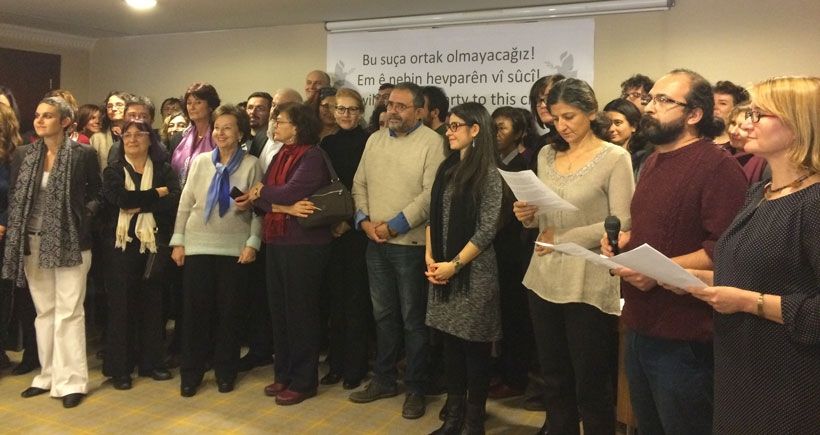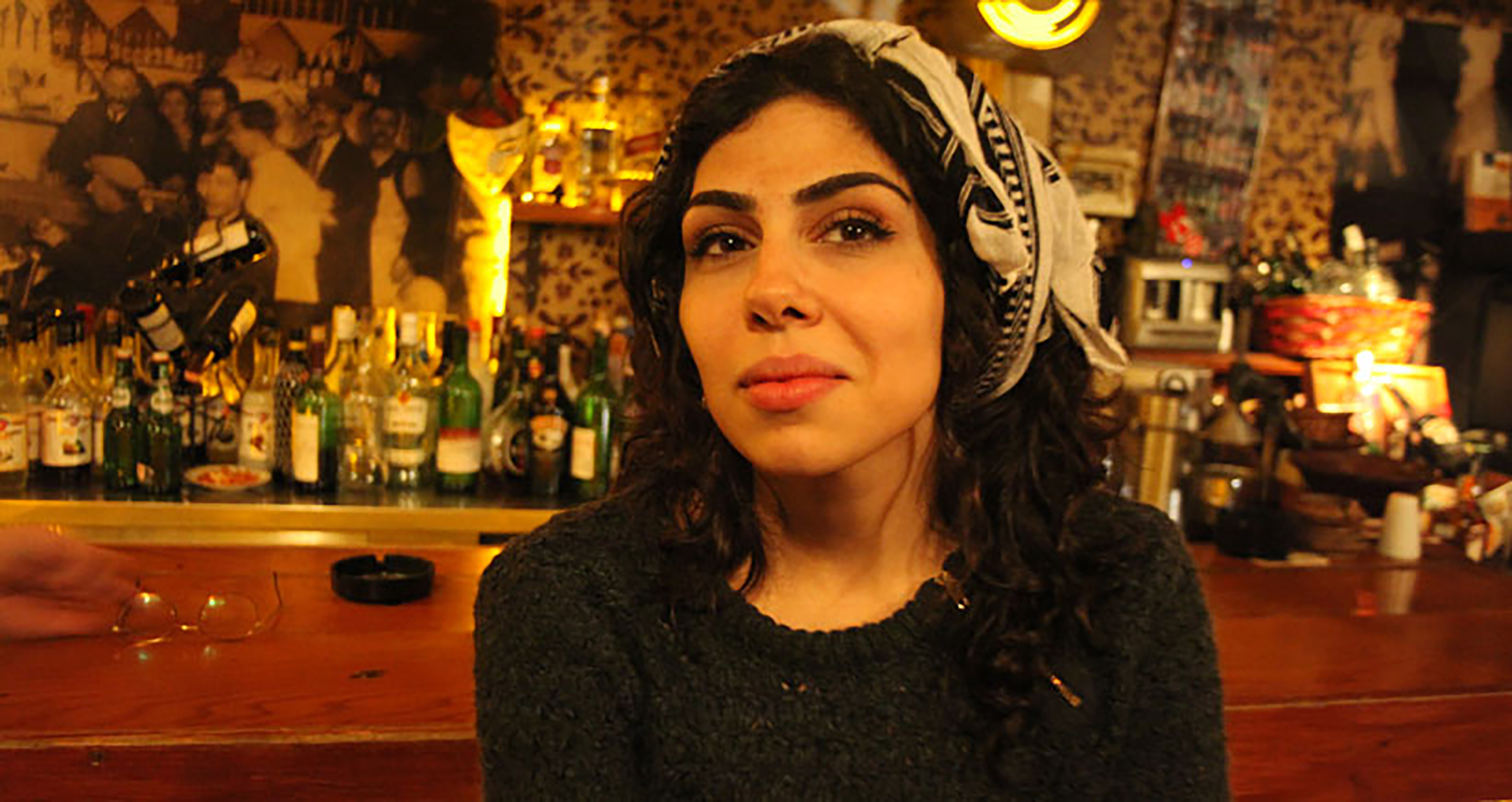The Costs of Peace-Seeking: Academics Under Attack

Anonymous
‘Turkey should be proud of the peace declaration signatories,”’ said Noam Chomsky last week, referring to 1128 academics that have lost their jobs, been banned from leaving the country, interrogated and detained for signing a petition named ‘we will not be a party to this crime.’ The petition calls for an end to Turkey’s ‘deliberate massacre and deportation of Kurdish people’ and requests independent observers to monitor the Kurdish provinces where many civilians have died due to military operations. Chomsky is also among the signatories and has condemned the Turkish state for violating academic freedom.
Having the chance to do face-to-face interviews with a couple of the signatories led me to conclude that the situation is growing more severe with each day. Not a single one of the academics interviewed wanted to be exposed while speaking, and therefore they will remain anonymous throughout the article.
‘Academics for Peace’ was established as early as 2012, but wasn’t widely known until January, when the petition was released. A number of academics came together 4 years ago to publish a statement acknowledging the demands of Kurdish prisoners on hunger strike, starting the initiative. ‘In 2013, we made a call to the government to cease the isolation of Öcalan and initiate the [peace] process with the Kurdish population. We collected 400 signatures, but [Academics for Peace] did not become as famous as it is today. We only had an occasionally active email group, resting there for more than three years,’ said one academic who was involved in the organisation from the beginning.
Today, the situation in Turkey’s Kurdish provinces has grown much worse, with images released showing devastation similar to what has been witnessed in Syria. Horrific events over the months rightfully triggered an attempt to stop blanket state violence, and this is the reason that over a thousand academics cried, ‘we will not be a party to this crime.’
‘Somebody had to bell the cat,’ explained one academic describing the situation, ‘when a group of mice is debating nullifying the threat of a cat, one has to volunteer to place the bell around its neck. We, as academics, decided to take this risk and sacrificed ourselves.’
Signatories of the declaration by and large have given the reason for their action as an effort to foster attention. They simply could not be as indifferent and silent as the mainstream media. ‘Up until this petition, the Turkish state could quietly operate massacres in the Kurdish villages. Opposition coming from the mainstream media was completely silenced.’
The publication of the petition enraged the Turkish President Erdogan. After publicly designating the signatories as ‘traitors’ on the same day of the Sultanahmet bombings in Istanbul, he provoked a lynching and harassment campaign against the academics. He referred to them as ‘so-called intellectuals.’ One academic expressed how she was quite offended by these insults, saying, ‘although I know there won’t be any outcome, I filed a defamation case against him.’
Erdogan’s overreaction to the petition, echoed his attitude during the Gezi protests. ‘Even those who [initially] wouldn’t sign the petition gathered against this severe pressure on academic freedom and signed it without backing off. They are trying to make the academy obey the government through violent means. In a sense, this became a social reaction just like Gezi,’ described one of the signatories.
Turkish scholars are currently preparing to face severe punishments because of this. The prosecutor of this case, İrfan Fidan, has demanded that the journalists face aggravated life sentences. However, there isn’t any article in the constitution to file an criminal investigation against the academics. They are expected to be trialed as ‘traitors’ for allegedly taking part in ‘terrorist organization propaganda.’
In the meantime, academics are concerned about their daily security and safety, with the government backing a lynching campaign. Two days after the petition was released, criminal leader Sedat Peker openly threatened the academics to ‘spill their blood and take a shower with it.’ Ultra- nationalists and government partisans have threatened the academics without hesitation.
‘They’ve uploaded pictures of us on a partisan government website to make us targets. A photo of Michel Foucault was published, mistaking him as one of our friends. I guess it’s because [an academic] has written many articles citing Foucault and pictures of Foucault must have appeared when they’ve Googled him.’ In the same news article where they were widely exposed, James Potter’s (actor Adrian Rawlins) picture was also mistakenly published.
‘We are all receiving anonymous threatening messages even from our own students,’ said one of the scholars. Academics working in universities outside the more politically liberal city of Istanbul face even more intimidation. Some were forced to leave their towns due to these threats.
Some of the interviewees were relatively in better situations. ‘We were among the lucky ones, as our rector had a very positive attitude,’ one scholar stated with a sarcastic smile, ‘and did nothing.’ Still, they are all extremely concerned about their futures: ‘Suppose they stole your office [and] took your hard- drive [and] all your work. You would be paralyzed.’
There are also the ones who complain about the lack of support coming from the colleagues in their universities, regardless of the worldwide support. Some of them are socially isolated. ‘I’ve been exchanging hellos with these people for over three years. Now, they are as if running away from us when we see each other. Not a single one of them even called me to ask how I feel.’
On the contrary, a massive solidarity platform is established among the ‘Academics for Peace’. There is a continuous legal and moral support shared within the organization. ‘I will visit Eskişehir this weekend to support one of our friends who will be called for a disciplinary investigation,’ replied an academic.
As a response to Erdogan’s overreaction, the 1128 signatures fetched a thousand more from both Turkey and abroad, and the campaign became a global media phenomenon. Some of the academics even perceived the intimidation they face as a good thing which has drawn wider international attention to the state violence in the Kurdish regions. They believe it was worth taking the risk of getting arrested. One of them stated, ‘if we have to pay a price, we’ll pay for it. I would sign it a thousand times more if I had to.’
While academics and researchers around the world were united to protest Erdogan’s policies, European and US governments, have turned a blind eye to Turkey’s brutal treatment of the Kurdish population. ‘European countries are equally responsible for the ongoing Kurdish massacre,’ commented an academic regarding this Western negligence. ‘They just ignore it because it would prevent them from getting rid of the Syrians and transforming Turkey into a refugee camp.’
The ‘Academics for Peace’ initiative characterises a broader social resistance in Turkey. ‘What made ‘Academics for Peace’ so phenomenal is that the movement also represented a reaction to the tendency of a proletarianisation of the academics. Academic capitalism gave birth to an urgent need of solidarity among them.’ The petition has drawn support from academics around the world, such as Immanuel Wallerstein, Judith Butler, Etienne Balibar and David Harvey. 19 academics from SOAS are also listed as backers of the campaign.
Heja Turk, a former Erasmus student at SOAS (2013), has also been detained by Istanbul police in association with the petition. Turk is a Kurdish student from the city of Mardin who graduated from Bogazici University (with which SOAS holds a year abroad programme), and was preparing to go to Columbia university for her postgraduate studies. Turk has been detained for ‘propogandising for a terrorist organisation’ and ‘insulting the President,’ however her lawyer said that they are not aware of the exact accusations as her case has been given a confidentiality order. Turk has stated that she ‘has never been detained and never engaged in [illegal] organisation activity.’ She had been awarded a scholarship by Columbia University but is now in danger of losing it if she is not released within one month.





